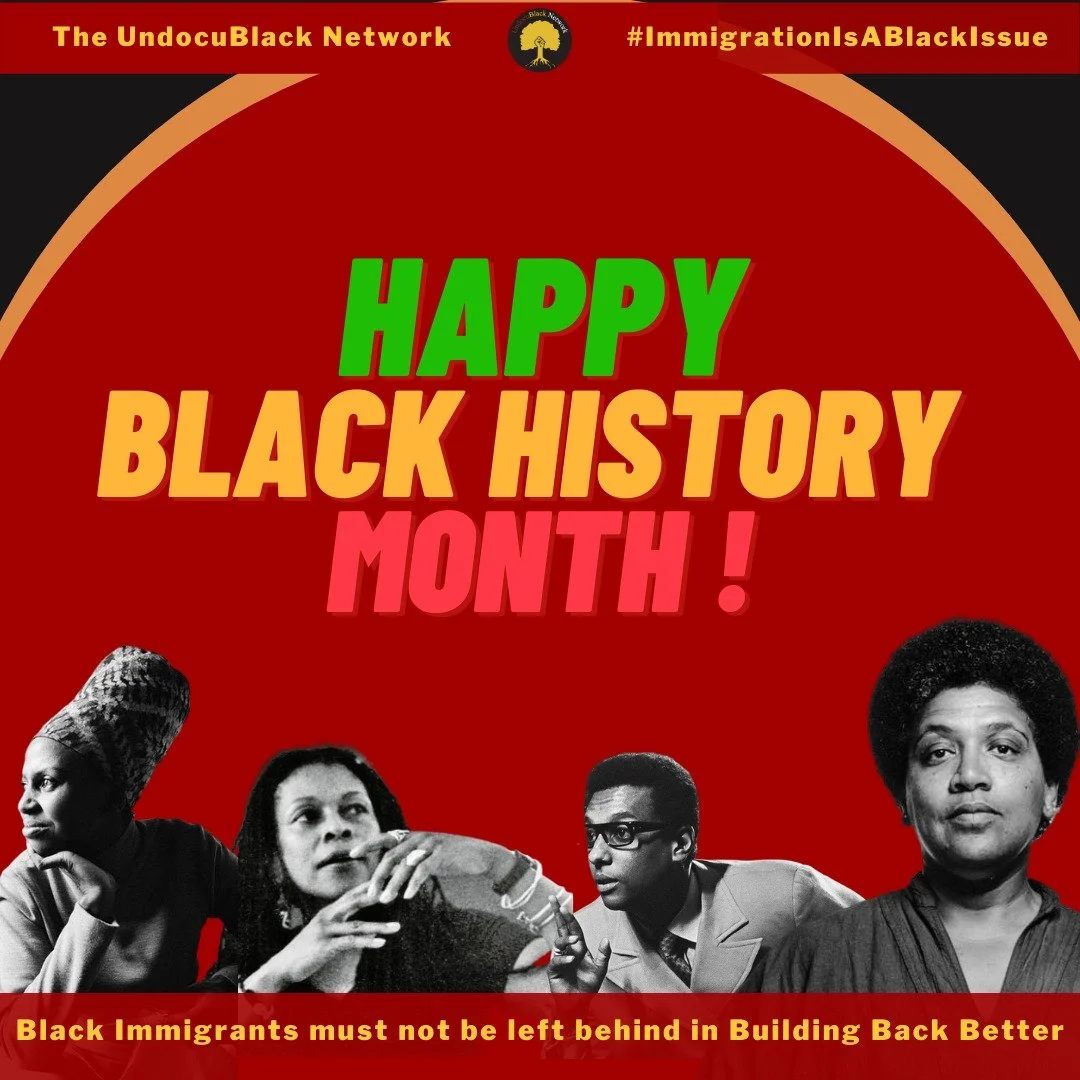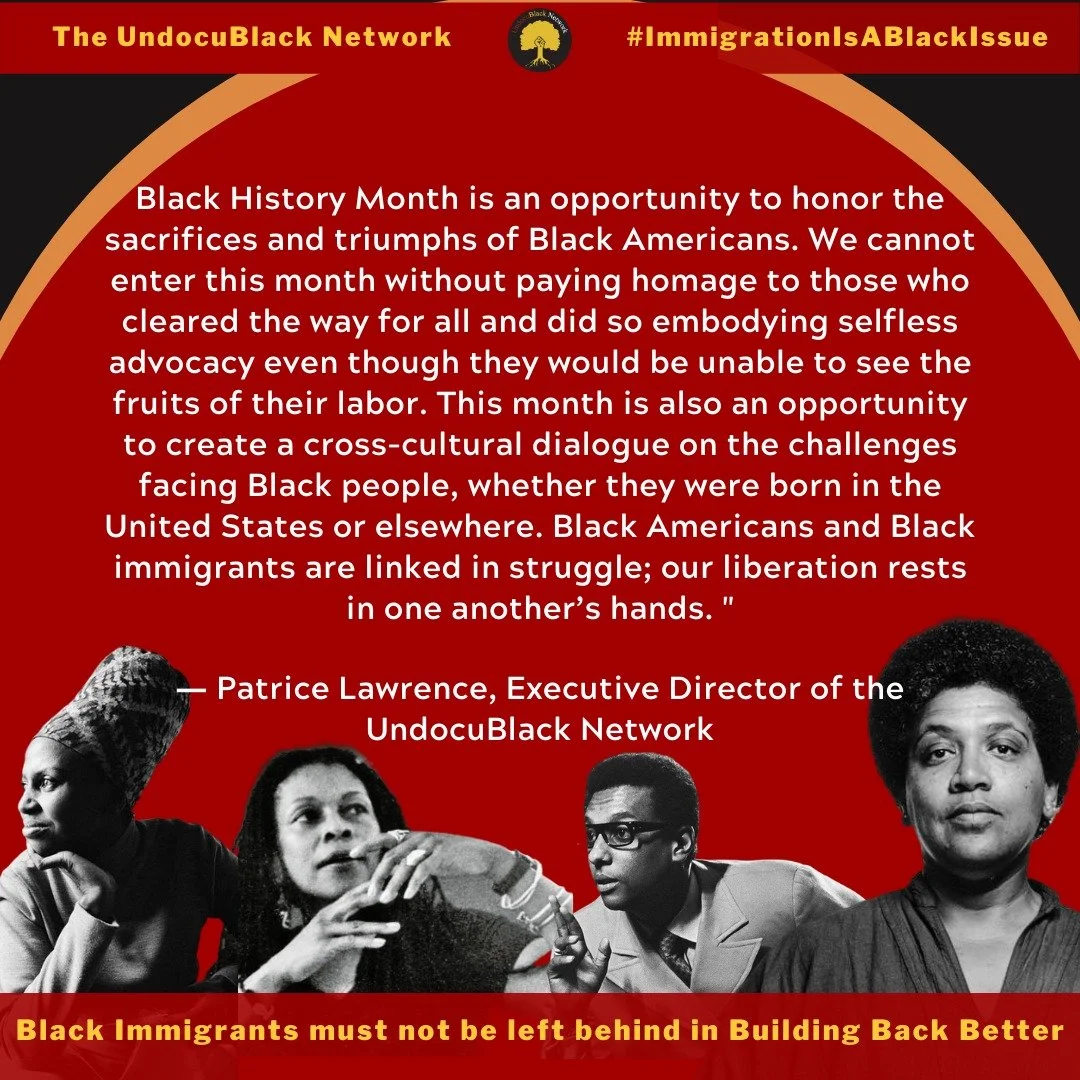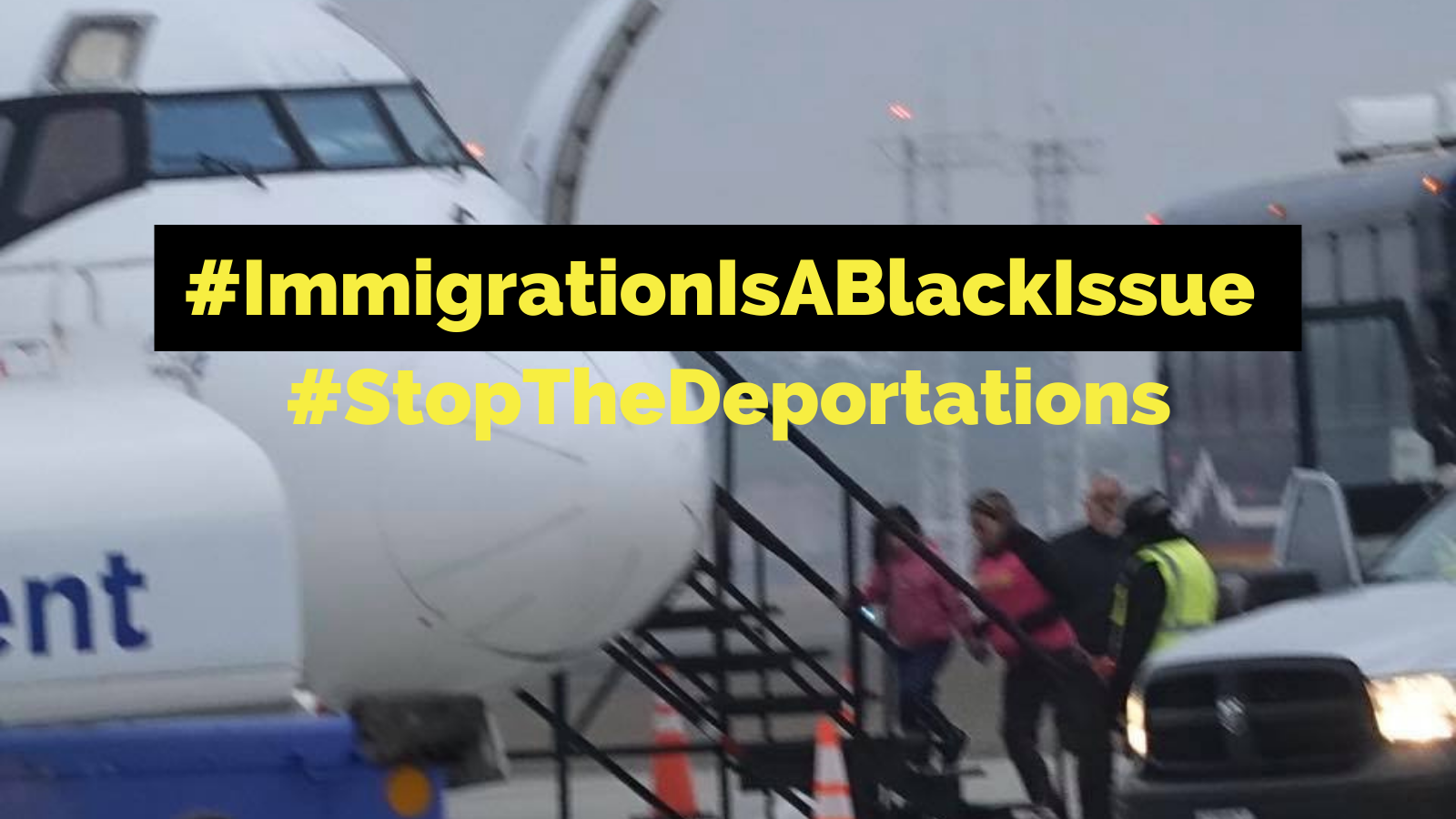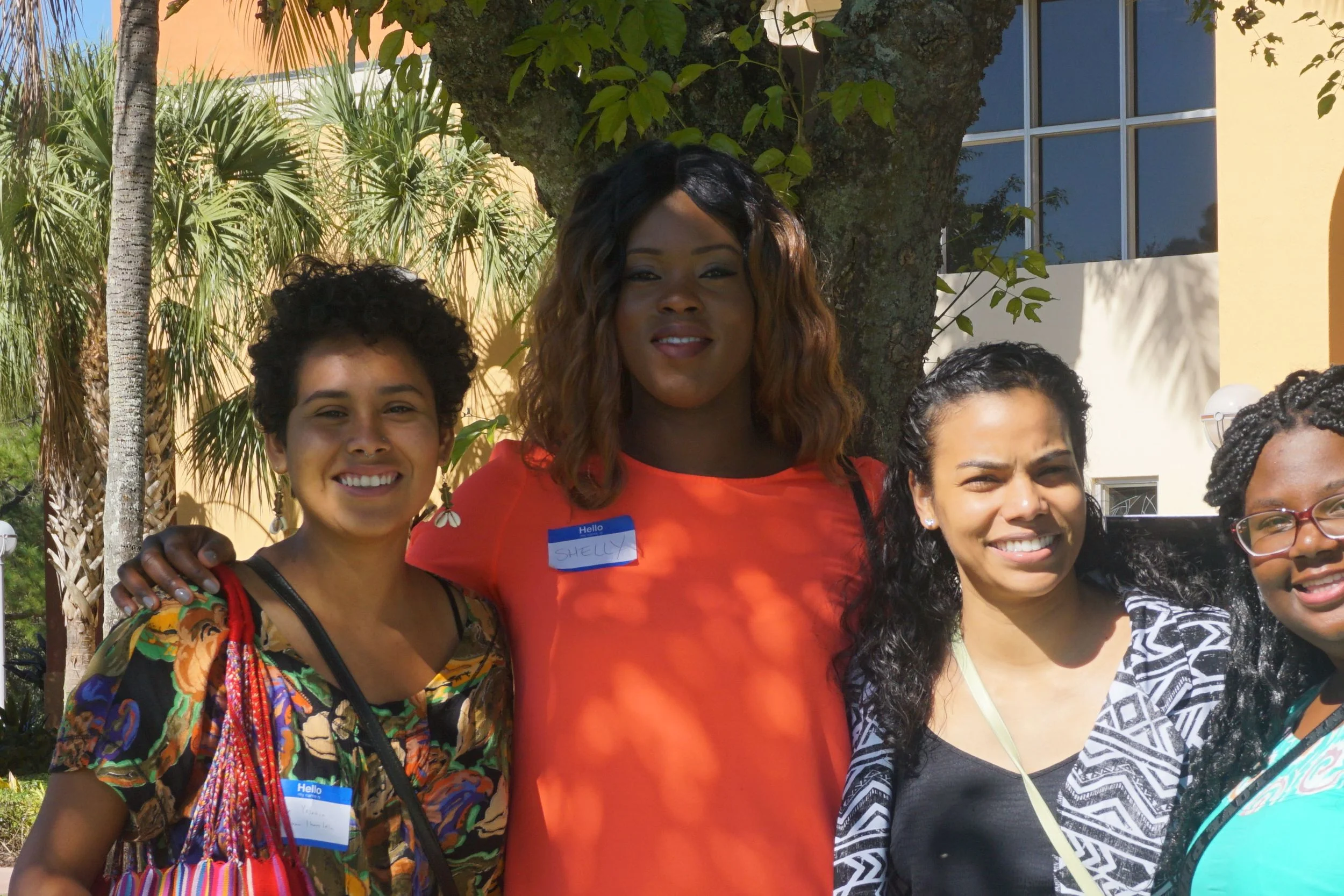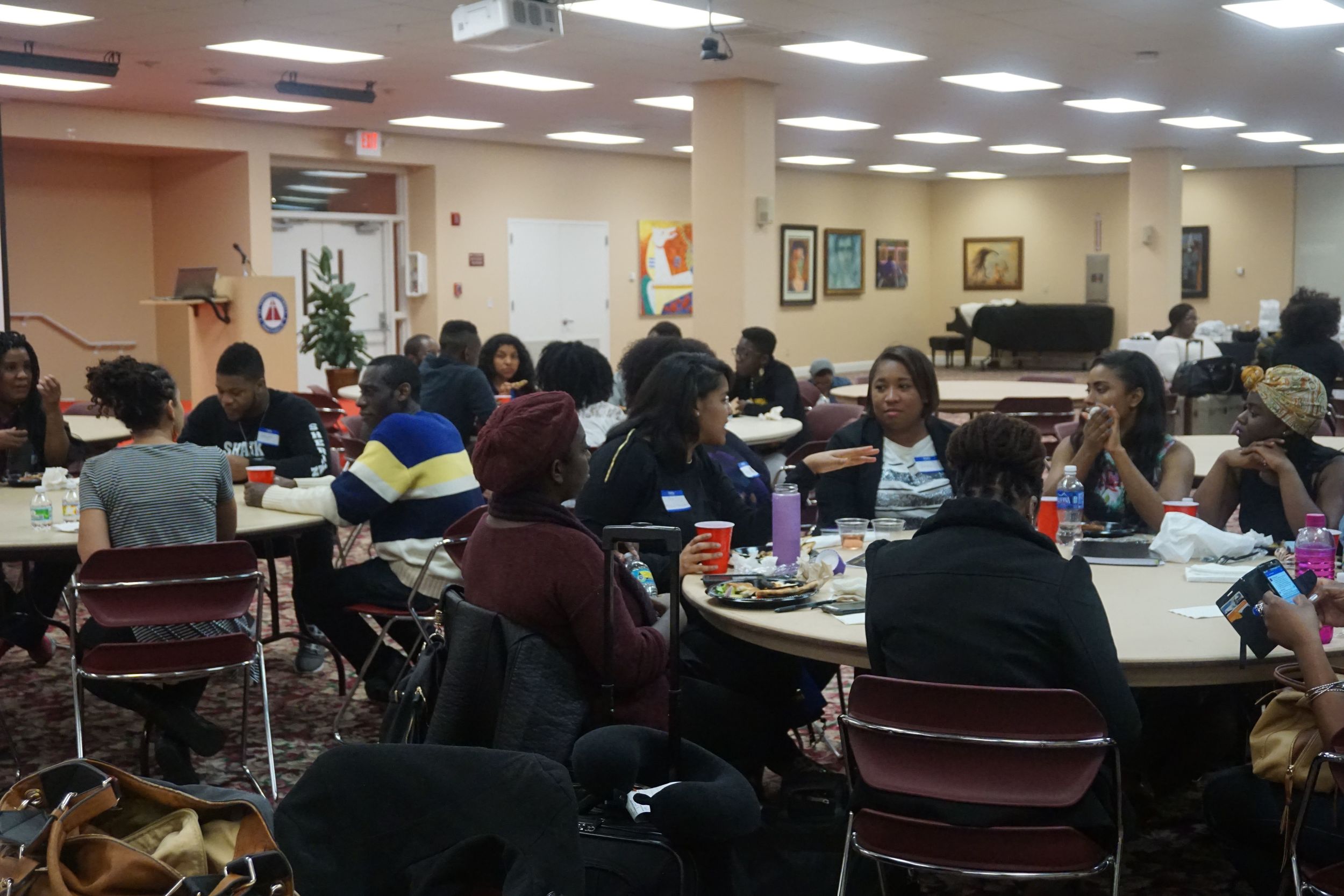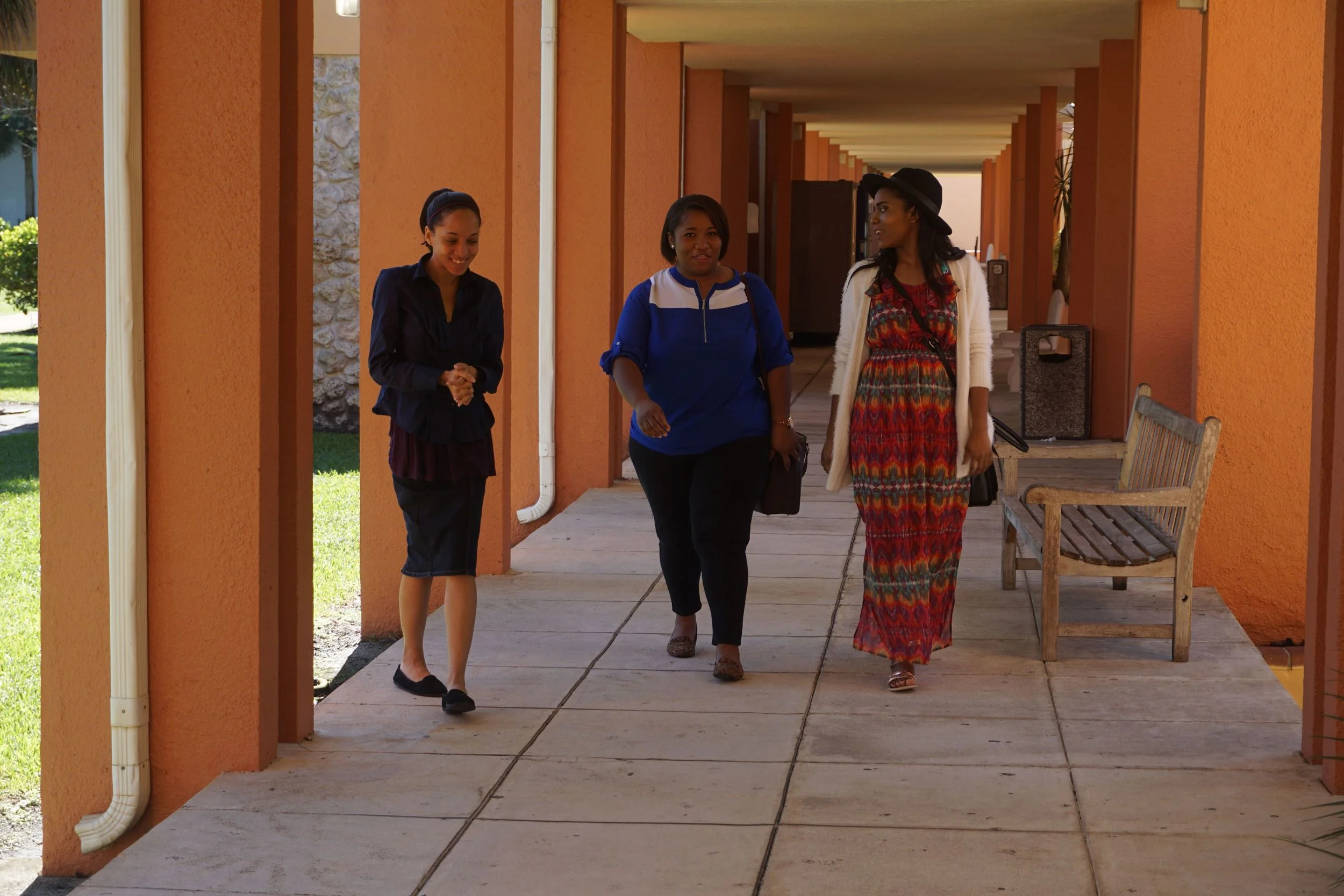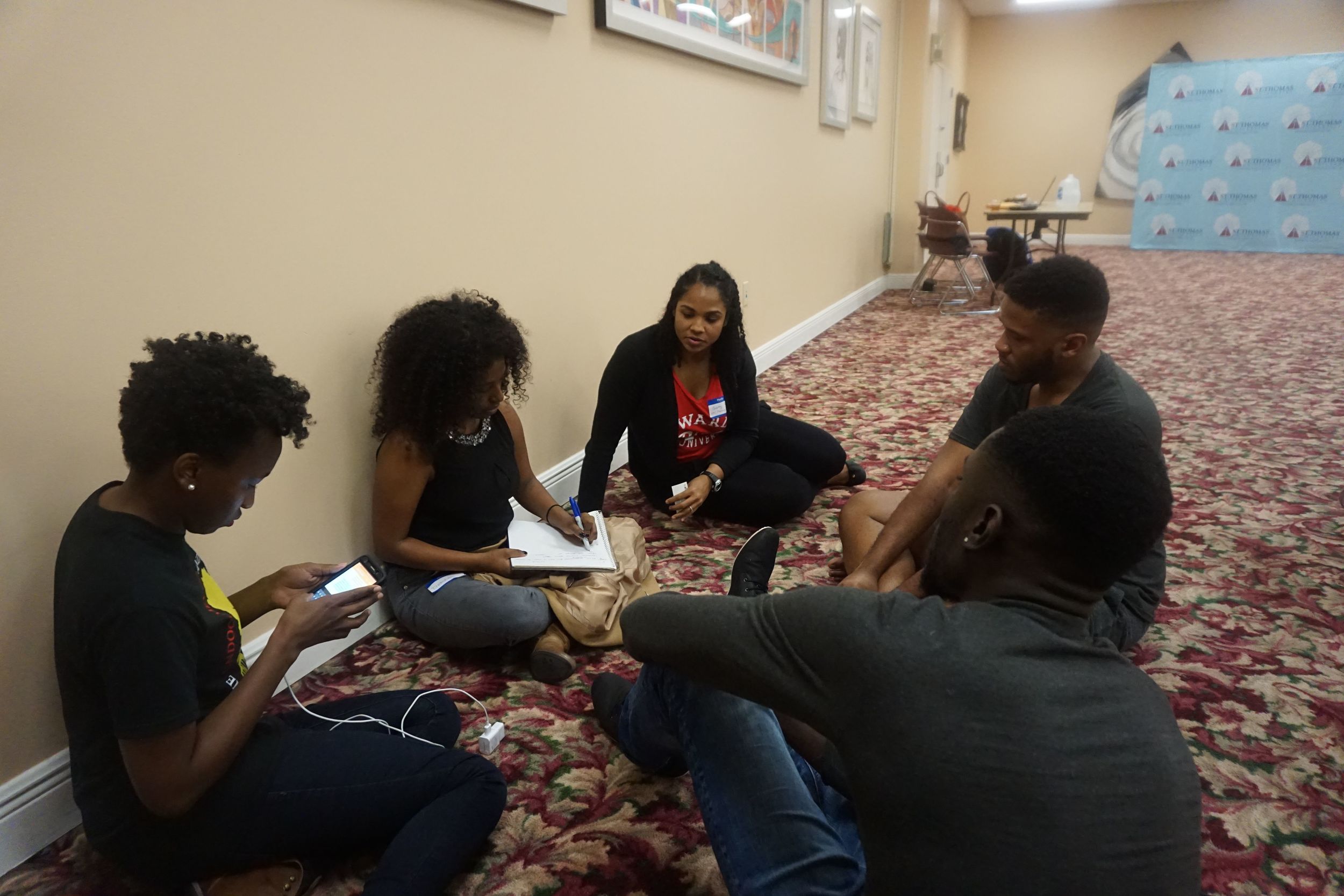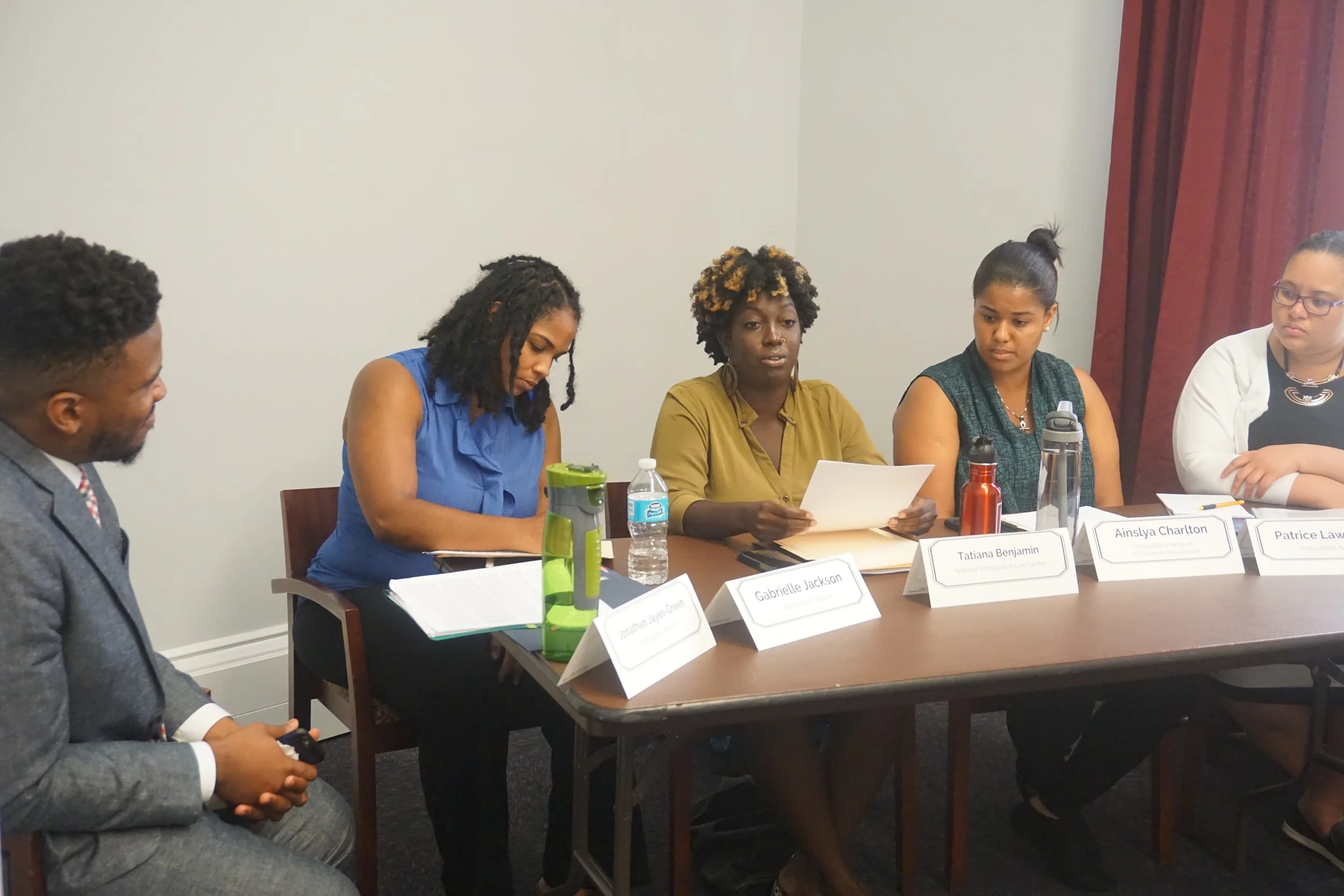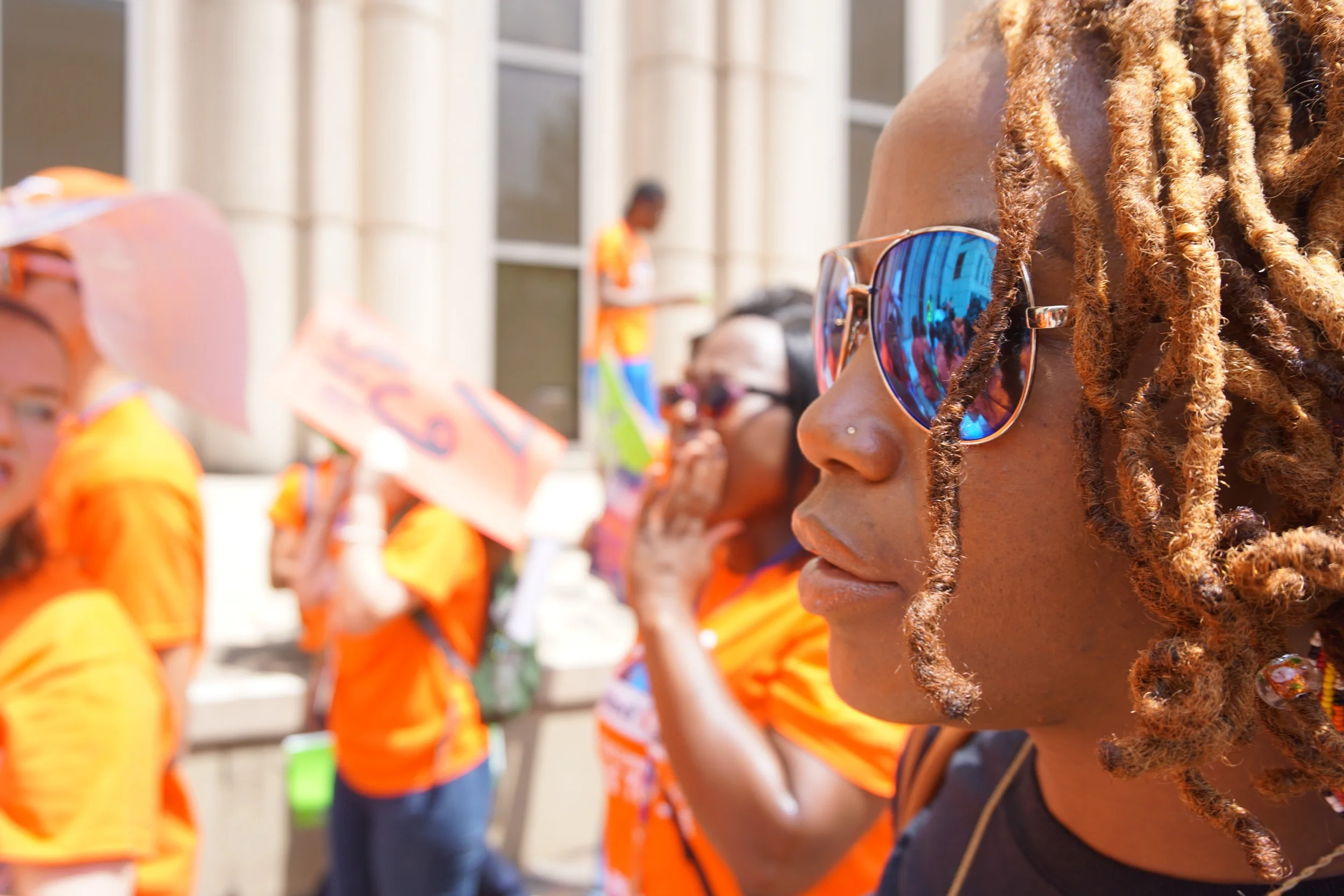WASHINGTON – The UndocuBlack Network today celebrates Black History Month and recognizes the occasion by honoring the triumphs of Black Americans and paying homage to Black people across the diaspora who came to this country, and linked their liberation to that of Black Americans. During this Black History Month, the UndocuBlack Network, wants to highlight the ongoing mistreatment and expulsions of Haitians and other Black immigrants, refugees, and asylees who are coming to the U.S. seeking safety.
“Black History Month is an opportunity to honor the sacrifices and triumphs of Black Americans,” said Patrice Lawrence, executive director of the UndocuBlack Network. “The progress that many of us enjoy today is on the backs of Black martyrs of the civil rights movements. Some of us, including many people in the South, have stood or walked on soil where Black Americans were beaten, maimed and lynched. We cannot enter this month without paying homage to those who cleared the way for all and did so embodying selfless advocacy even though they would be unable to see the fruits of their labor. This month is also an opportunity to create cross-cultural dialogue on the challenges facing Black people, whether they were born in the United States or elsewhere. Black Americans and Black immigrants are linked in struggle; our liberation rests in one another’s hands.”
“No one is free unless we are all free. Moreover, the same system oppresses both communities. This Black History Month and beyond, we must look for ways to build bridges of understanding and empathy.”
“White supremacy wrongly seeks to separate people based on where they were born, ability, sexual orientation or how much money one has in the bank. But unless Black Americans are free, Black immigrants will not taste freedom. Claude McKay, Marcus Garvey, Miriam Makeba, Shirley Chisholm, Cicely Tyson, Kwame Ture, Chinua Achebe all understood this and worked toward the uplift of the Black community. The extent to which Black Americans fight for the safety and security of Black immigrants is the degree to which Black Americans secure their own future. No one is free unless we are all free. Moreover, the same system oppresses both communities. This Black History Month and beyond, we must look for ways to build bridges of understanding and empathy.”
“We launched our ‘Immigration Is a Black Issue’ campaign because we understood that Black immigrants are marginalized twofold by being both Black and undocumented. We also understood that Black immigrants are subject to the same human rights violations that Black American experience and that our civil rights leaders have fought for all Black people to have the right to freedom, dignity, and liberation. The true measure of freedom is whether it benefits all. We can never enjoy a system where some are free and others are in the bondage of mass incarceration, housing insecurity, deportation, immigration-based criminalization, etc. This campaign is a testament to our struggles and our fight having always been interconnected.”
###
